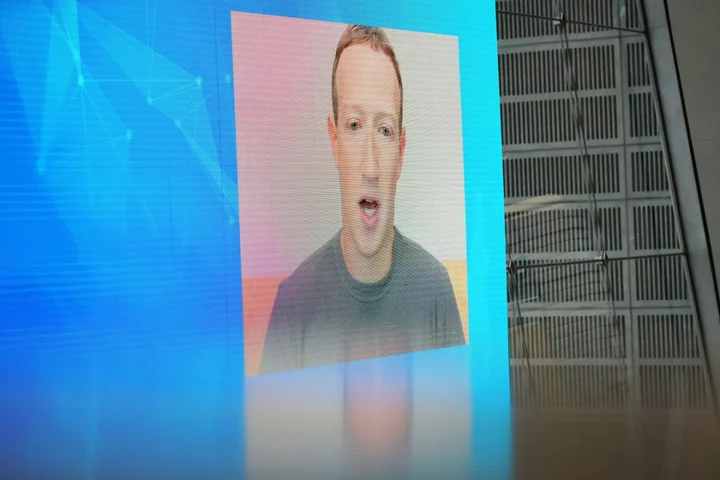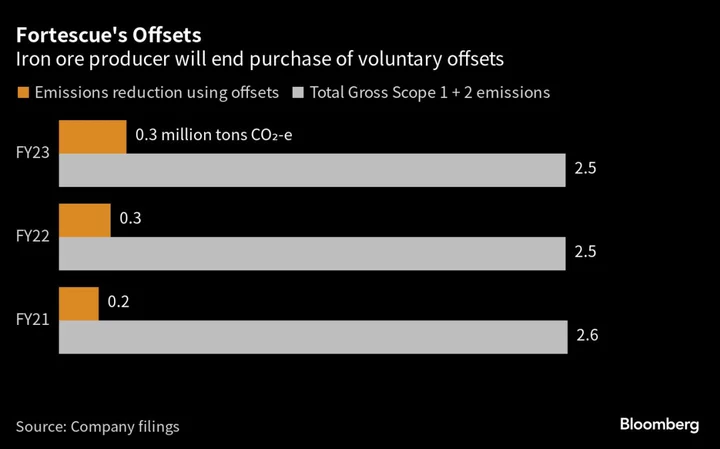Meta chief Mark Zuckerberg has said that the company’s Metaverse platform may one day help people interact with the virtual avatars of their deceased loved ones. In an interview with podcaster Lex Fridman in the Metaverse, Mr Zuckerberg shared his thoughts on the future of virtual reality and the company’s VR platform. He shared details on Meta using new technology to scan users’ faces to build their 3D virtual models, Insider first reported. Mr Fridman asked the Meta chief if there was the possibility of the technology being used to talk to dead friends and relatives. “I would love to talk to people who are no longer here that are loved ones. So if you look into the future, is that something you think about?” he asked. While acknowledging that the idea was complex, the Meta boss said there is “probably some balance” for the idea of creating a virtual version of a dead person by using VR and AI. “If someone has lost a loved one and is grieving, there may be ways in which being able to interact or relive certain memories could be helpful,” Mr Zuckerberg told the podcaster. But the Meta boss also acknowledged such a technology could become “unhealthy”. “I’m not an expert in that, so I think we’d have to study that and understand it in more detail,” he said. The tech giant’s expenses have shot up since it began investing in its futuristic virtual reality social media platform Metaverse. Data from July revealed that despite a strong rise in Meta’s advertising revenue and dramatically cutting costs as well as laying off staff, the company had increased expenses due to the development of the metaverse, its artificial intelligence projects and legal fees. At a developer conference last week, the tech giant unveiled the next version of its VR headset, the Quest 3, that would cost $499 and begin shipping 10 October. Mr Zuckerberg said Meta was “focused on building the future of human connection” where people would interact with hologram versions of their friends or colleagues with AI bots built to assist them. “Soon the physical and digital will come together in what we call the metaverse,” he said. But observers have pointed out that Meta’s transformation to build the nascent virtual-reality world has been slower than expected, costing the company billions of dollars. Experts have also highlighted that global interest for virtual reality headsets has been low. A recent survey by Piper Sandler found less than 1 per cent of US teenagers regularly used virtual reality headsets, with less than a third of the 5,690 teens polled owning a VR device. Only 7 per cent of the respondents had plans to purchase a VR headset and over half said they were either unsure or uninterested. Faced with the challenges of uncertainty around the global economy and a slump in online advertising, the tech giant slashed over 20,000 jobs. Mr Zuckerberg also dubbed 2023 to be the company’s “year of efficiency”. Meanwhile, Apple has also launched its own VR headset, the Vision Pro, which it hopes will be its most important product since the iPhone. Apple’s virtual reality tool allows people to see apps projected on top of the room they are in, enabling them to be “freed from the confines of a display”. Apple’s headset, however, is on the pricier side. It costs $3,499, while Meta’s latest one comes at around $500. Read More Apple blames Instagram for overheating iPhones Tom Hanks calls out AI version of him made without his permission: ‘Beware!’ Meta launches AI chatbots with ‘personalities’ to take on ChatGPT Meta launches AI chatbots with ‘personalities’ to take on ChatGPT Meta showcases new AR/VR tech at annual Connect conference Apple blames Instagram for overheating iPhones
Meta chief Mark Zuckerberg has said that the company’s Metaverse platform may one day help people interact with the virtual avatars of their deceased loved ones.
In an interview with podcaster Lex Fridman in the Metaverse, Mr Zuckerberg shared his thoughts on the future of virtual reality and the company’s VR platform.
He shared details on Meta using new technology to scan users’ faces to build their 3D virtual models, Insider first reported.
Mr Fridman asked the Meta chief if there was the possibility of the technology being used to talk to dead friends and relatives. “I would love to talk to people who are no longer here that are loved ones. So if you look into the future, is that something you think about?” he asked.
While acknowledging that the idea was complex, the Meta boss said there is “probably some balance” for the idea of creating a virtual version of a dead person by using VR and AI.
“If someone has lost a loved one and is grieving, there may be ways in which being able to interact or relive certain memories could be helpful,” Mr Zuckerberg told the podcaster.
But the Meta boss also acknowledged such a technology could become “unhealthy”.
“I’m not an expert in that, so I think we’d have to study that and understand it in more detail,” he said.
The tech giant’s expenses have shot up since it began investing in its futuristic virtual reality social media platform Metaverse.
Data from July revealed that despite a strong rise in Meta’s advertising revenue and dramatically cutting costs as well as laying off staff, the company had increased expenses due to the development of the metaverse, its artificial intelligence projects and legal fees.
At a developer conference last week, the tech giant unveiled the next version of its VR headset, the Quest 3, that would cost $499 and begin shipping 10 October.
Mr Zuckerberg said Meta was “focused on building the future of human connection” where people would interact with hologram versions of their friends or colleagues with AI bots built to assist them.
“Soon the physical and digital will come together in what we call the metaverse,” he said.
But observers have pointed out that Meta’s transformation to build the nascent virtual-reality world has been slower than expected, costing the company billions of dollars.
Experts have also highlighted that global interest for virtual reality headsets has been low.
A recent survey by Piper Sandler found less than 1 per cent of US teenagers regularly used virtual reality headsets, with less than a third of the 5,690 teens polled owning a VR device.
Only 7 per cent of the respondents had plans to purchase a VR headset and over half said they were either unsure or uninterested.
Faced with the challenges of uncertainty around the global economy and a slump in online advertising, the tech giant slashed over 20,000 jobs.
Mr Zuckerberg also dubbed 2023 to be the company’s “year of efficiency”.
Meanwhile, Apple has also launched its own VR headset, the Vision Pro, which it hopes will be its most important product since the iPhone.
Apple’s virtual reality tool allows people to see apps projected on top of the room they are in, enabling them to be “freed from the confines of a display”.
Apple’s headset, however, is on the pricier side. It costs $3,499, while Meta’s latest one comes at around $500.
Read More
Apple blames Instagram for overheating iPhones
Tom Hanks calls out AI version of him made without his permission: ‘Beware!’
Meta launches AI chatbots with ‘personalities’ to take on ChatGPT
Meta launches AI chatbots with ‘personalities’ to take on ChatGPT
Meta showcases new AR/VR tech at annual Connect conference
Apple blames Instagram for overheating iPhones









